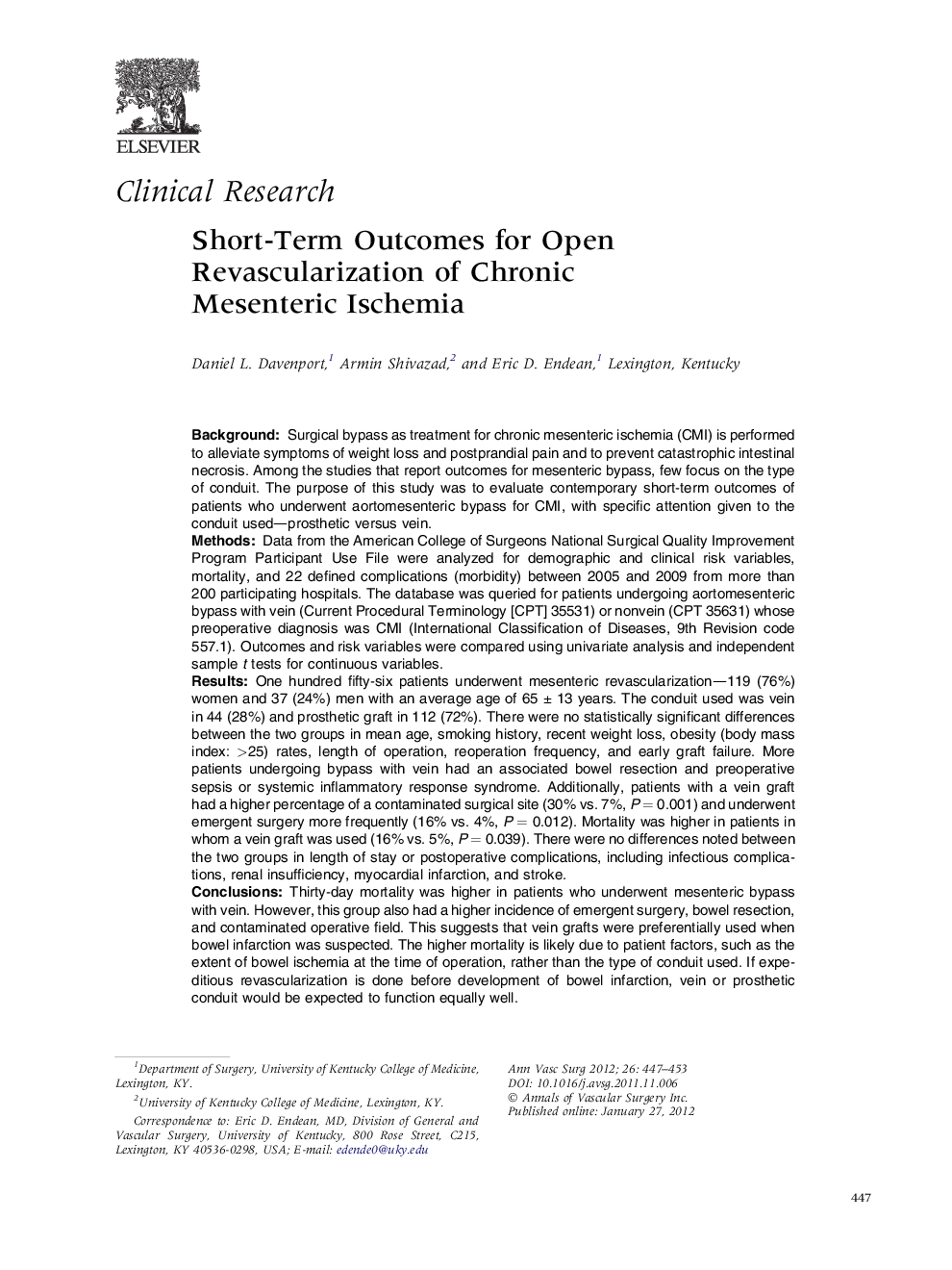| کد مقاله | کد نشریه | سال انتشار | مقاله انگلیسی | نسخه تمام متن |
|---|---|---|---|---|
| 2887123 | 1574227 | 2012 | 7 صفحه PDF | دانلود رایگان |

BackgroundSurgical bypass as treatment for chronic mesenteric ischemia (CMI) is performed to alleviate symptoms of weight loss and postprandial pain and to prevent catastrophic intestinal necrosis. Among the studies that report outcomes for mesenteric bypass, few focus on the type of conduit. The purpose of this study was to evaluate contemporary short-term outcomes of patients who underwent aortomesenteric bypass for CMI, with specific attention given to the conduit used—prosthetic versus vein.MethodsData from the American College of Surgeons National Surgical Quality Improvement Program Participant Use File were analyzed for demographic and clinical risk variables, mortality, and 22 defined complications (morbidity) between 2005 and 2009 from more than 200 participating hospitals. The database was queried for patients undergoing aortomesenteric bypass with vein (Current Procedural Terminology [CPT] 35531) or nonvein (CPT 35631) whose preoperative diagnosis was CMI (International Classification of Diseases, 9th Revision code 557.1). Outcomes and risk variables were compared using univariate analysis and independent sample t tests for continuous variables.ResultsOne hundred fifty-six patients underwent mesenteric revascularization—119 (76%) women and 37 (24%) men with an average age of 65 ± 13 years. The conduit used was vein in 44 (28%) and prosthetic graft in 112 (72%). There were no statistically significant differences between the two groups in mean age, smoking history, recent weight loss, obesity (body mass index: >25) rates, length of operation, reoperation frequency, and early graft failure. More patients undergoing bypass with vein had an associated bowel resection and preoperative sepsis or systemic inflammatory response syndrome. Additionally, patients with a vein graft had a higher percentage of a contaminated surgical site (30% vs. 7%, P = 0.001) and underwent emergent surgery more frequently (16% vs. 4%, P = 0.012). Mortality was higher in patients in whom a vein graft was used (16% vs. 5%, P = 0.039). There were no differences noted between the two groups in length of stay or postoperative complications, including infectious complications, renal insufficiency, myocardial infarction, and stroke.ConclusionsThirty-day mortality was higher in patients who underwent mesenteric bypass with vein. However, this group also had a higher incidence of emergent surgery, bowel resection, and contaminated operative field. This suggests that vein grafts were preferentially used when bowel infarction was suspected. The higher mortality is likely due to patient factors, such as the extent of bowel ischemia at the time of operation, rather than the type of conduit used. If expeditious revascularization is done before development of bowel infarction, vein or prosthetic conduit would be expected to function equally well.
Journal: Annals of Vascular Surgery - Volume 26, Issue 4, May 2012, Pages 447–453